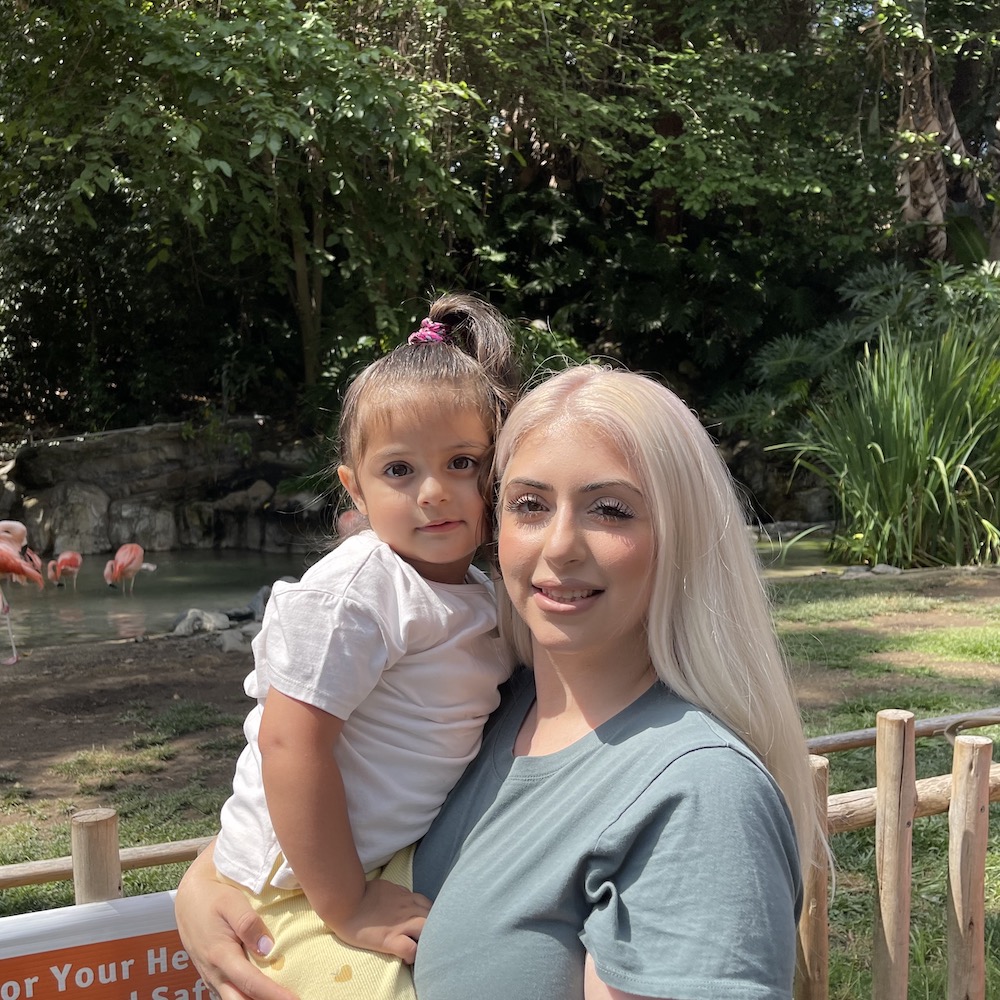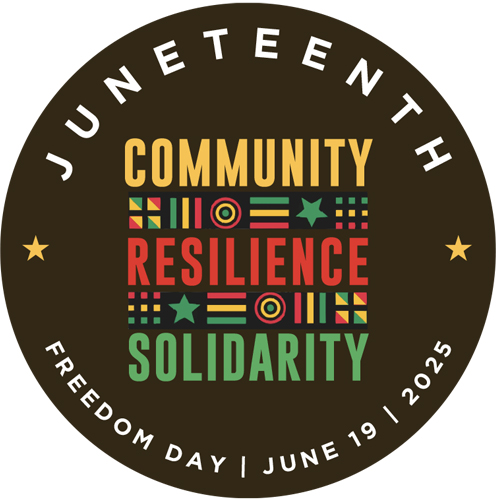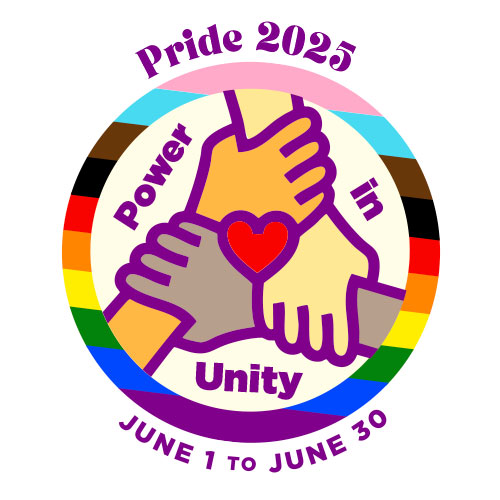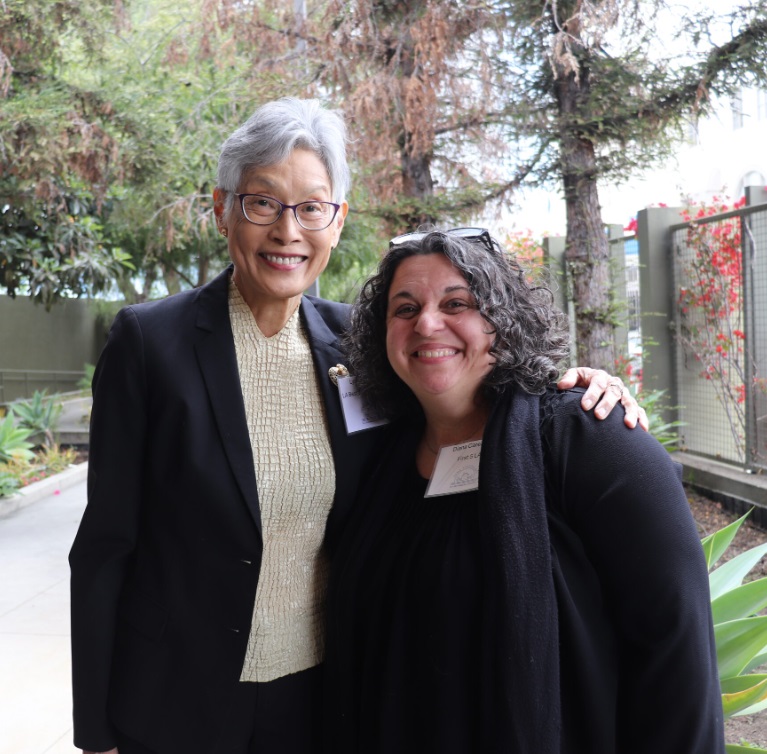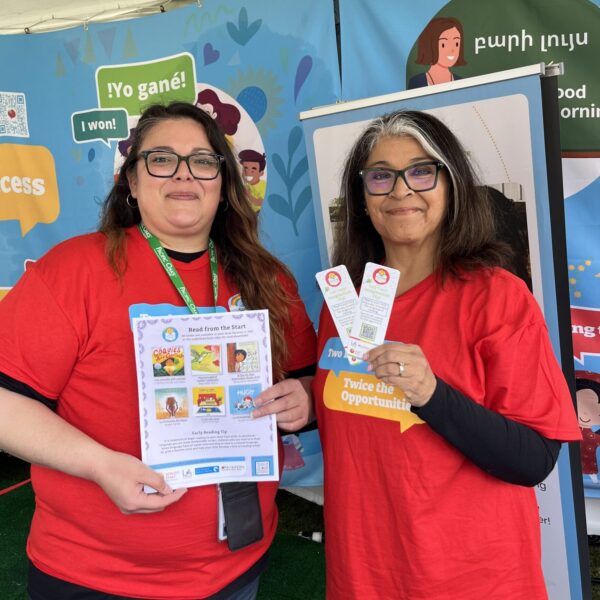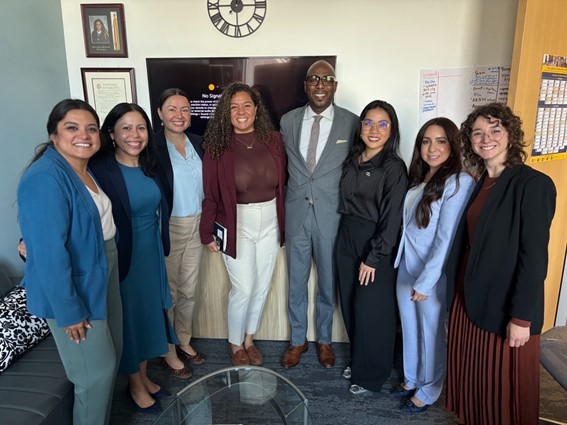September 29, 2022
(Editor’s Note: This is one of three vignettes illustrating the consequences of the COVID-19 pandemic on families with young children. Each vignette highlights a key finding from a survey of L.A. County parents of young children two years after the onset of the COVID-19 pandemic. Interviews were conducted in the spring and summer. Read the full article on the survey results here.
It all happened so fast.
Penelope was only 2 years old when the COVID-19 pandemic hit in 2020.
“We weren’t able to enroll her in preschool. A lot of preschools were temporarily closed or only doing Zoom,” her mom, Izabel Kurt, recalled. “She was too young for Zoom.”
When preschools reopened six months later, Izabel was told that Penelope would have to wear a mask.
“I was a little concerned about that because at her age, kids are so tuned in to facial expressions. And I felt uncomfortable for her to wear a mask for four to six hours,” Izabel said. “I did not let her go to preschool. It was sad and disappointing.”
“I am really fortunate I could bring her to work, but it breaks my heart that she is missing out on the social life. Socialization and communication are part of the foundational skills in life kids learn from preschool to kindergarten. From the moment they are born to five years old is a crucial time in their life.” – Izabel Kurt
By the time Penelope was 3, preschool tuition rates had doubled, making it impossible for the single mom to enroll her daughter. Izabel turned to her mother, who watched Penelope three times a week. Izabel was also fortunate to have a boss that allowed her to bring Penelope to her job at a beauty store for the other two workdays.
Meanwhile, Izabel taught Penelope her ABCs, played matching games, did puzzles, painted and more — much of it on a tablet that she got for her daughter. Said Izabel: “She is smart, has a great memory and is eager to learn.”
But Izabel fears there is a critical element missing.
“I am really fortunate I could bring her to work, but it breaks my heart that she is missing out on the social life,” Izabel said. “Socialization and communication are part of the foundational skills in life kids learn from preschool to kindergarten. From the moment they are born to five years old is a crucial time in their life.”
Child development experts note that beginning at age 2, interactive play with other children is a key learning component of a child’s development.
Penelope is talkative at home and with family. When Izabel brings her daughter to the beauty store, however, the little girl can be quite shy, sometimes having a hard time saying “hello” to others or sharing her thoughts. This is hard for her mom, who knows how bright her daughter is. “I want her to have the confidence to be vocal.”
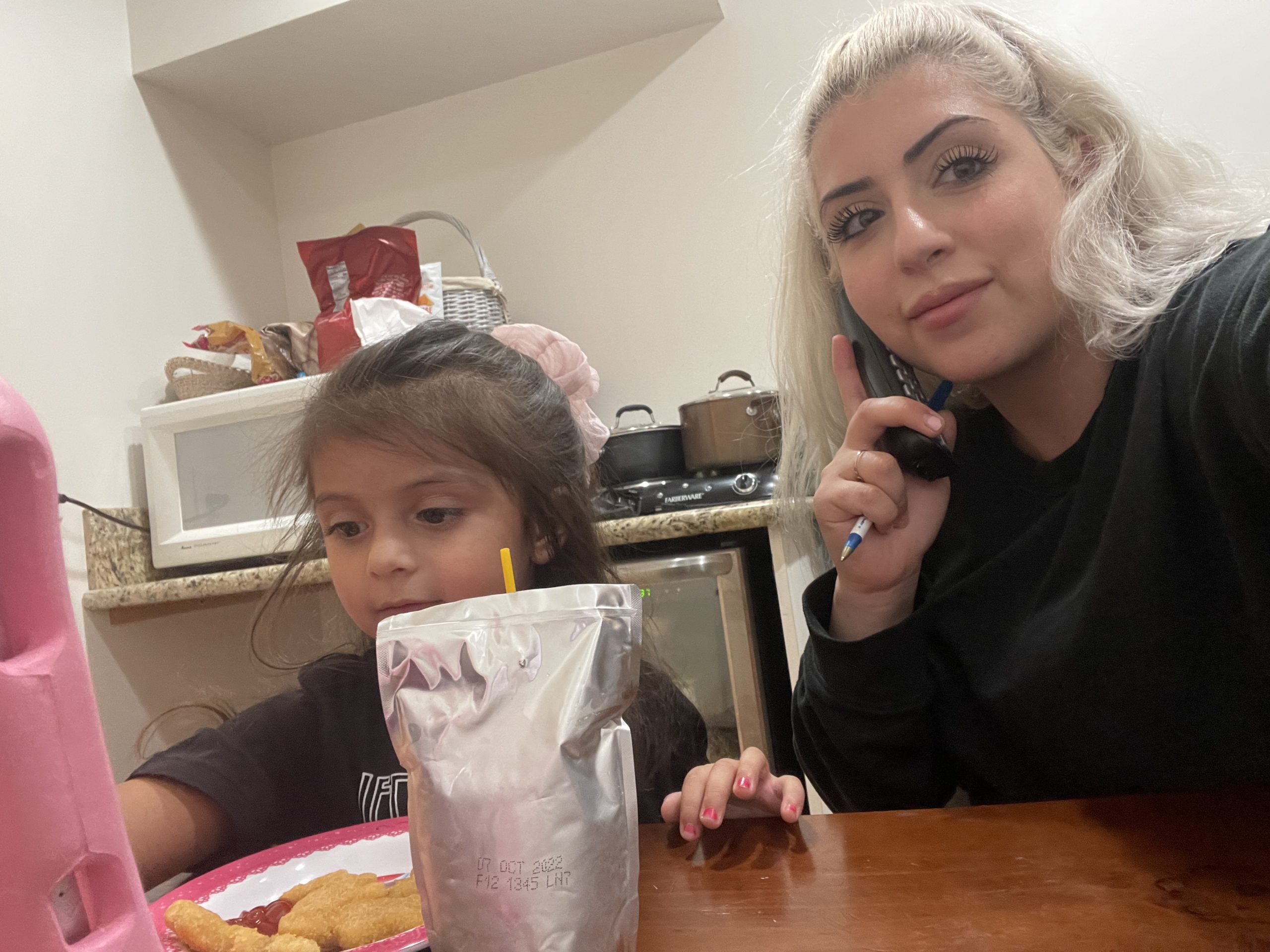
Izabel does her best to increase Penelope’s socialization skills. Penelope plays with co-worker’s children who occasionally come to the store. Izabel takes her daughter to the park on weekends to play with other children. And she recently threw a birthday party for Penelope and her friends in the arcade of a local bowling alley.
Yet Izabel fears the pandemic has already taken a toll — a concern bolstered by a recent survey of 269 parents of young children in Los Angeles County conducted for First 5 LA.
The survey — the first in L.A. County conducted two years into the pandemic — revealed that more than half (52 percent) of parents said the pandemic has caused their child to fall behind in their learning and progress.
Additionally, 79 percent of parents surveyed said that the pandemic had affected their child’s behavior or emotions. Of these parents:
- Almost half (45 percent) said their child had more difficulty playing or getting along with other kids.
- 29 percent said their child had more difficulty with parents or teachers.
Locally and nationally, socio-emotional skills are among the greatest challenges for young children returning to or heading into preschool for the first time after the onset of the pandemic, experts say.
“Bunker babies” – or those children under 5 like Penelope who have lived mostly in social isolation from other children during the pandemic – may experience social or developmental deficits, especially if they are older. These deficits have appeared in some children who are now 3 to 6 years old, according to experts. Penelope is now 4.
Izabel has had her daughter on a waiting list for preschool since August 2021. Overall, her daughter has been without preschool from March 2020 to June 2022.
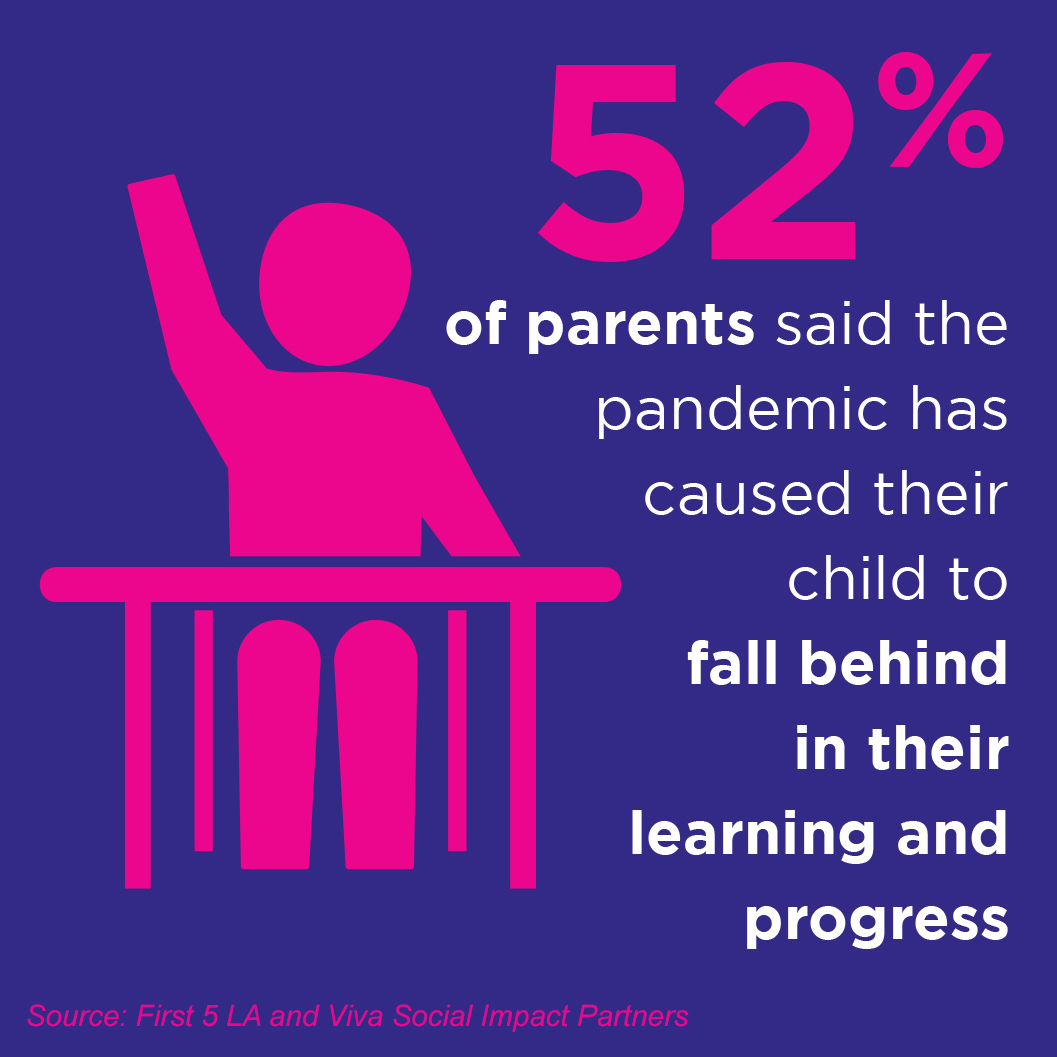 “I’m worried when she gets into school, she will be behind,” Izabel said. “I’m trying to be optimistic. I do see her social skills developing.”
“I’m worried when she gets into school, she will be behind,” Izabel said. “I’m trying to be optimistic. I do see her social skills developing.”
Fortunately, experts say, “bunker babies” like Penelope may be able to use their inherent adaptability and resilience to catch up — given the opportunity, patience and support to hone their social skills in school.
Upon hearing this, Izabel said: “That is good news. That gives me reassurance.”
Izabel was also comforted to know that she is not the only parent in L.A. County concerned about the pandemic’s possible effect on her young child’s learning, as First 5 LA’s survey revealed. Many parents, she noted, do not speak out about their fears.
“It helps to know that I’m not alone,” she said.
NOTE: As part of its 2020-28 Strategic Plan, First 5 LA is working with its early care and education partners to improve access to quality early learning for parents, as well as strengthening systems of support for early learning providers. Read more here about how First 5 LA has expanded these efforts during the pandemic.
